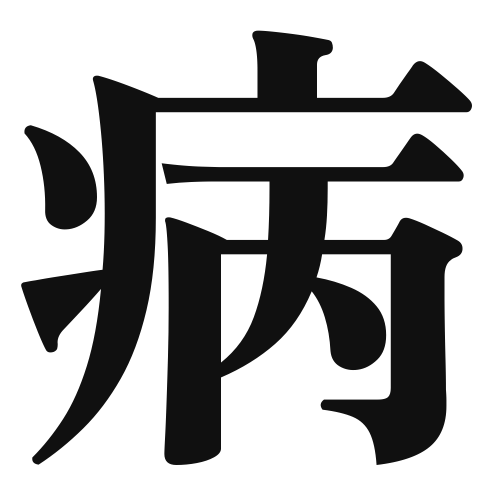1. Overview of Meaning
The kanji “病” (byou) means “illness” or “disease.” It refers to a state of being unwell, whether physically or mentally. This character is commonly used in medical contexts and discussions about health.
2. Formation and Radical
The kanji “病” is a compound character that combines elements to convey its meaning. It consists of the radical “疒” (ne), which relates to sickness or disease, and the phonetic component “丷” (bō), which contributes to its pronunciation.
The radical “疒” is often found in other kanji related to health and illness, emphasizing the connection to sickness.
3. Examples of Usage
Common words and phrases that include “病” are:
- 病気 (byouki) – illness
- 病院 (byouin) – hospital
- 病人 (byoujin) – patient
Example sentences in daily conversation:
- 彼は病気です。 (Kare wa byouki desu.) – He is ill.
- 病院に行かなければなりません。 (Byouin ni ikanakereba narimasen.) – I have to go to the hospital.
4. Synonyms and Antonyms
Similar kanji with related meanings include:
- 疾患 (shikkan) – a specific disease or disorder, often used in a medical context.
- 痛み (itami) – pain, which refers to the sensation often associated with illness.
Antonyms include:
- 健康 (kenkou) – health, representing a state of well-being.
5. Cultural and Historical Background
The kanji “病” is deeply rooted in Japanese culture, where health and illness are significant topics. Traditional medicine and practices often emphasize the balance of body and mind.
Proverbs and idioms related to “病” include:
- 病は気から (byou wa ki kara) – “Illness comes from the mind,” suggesting that mental state can influence physical health.
